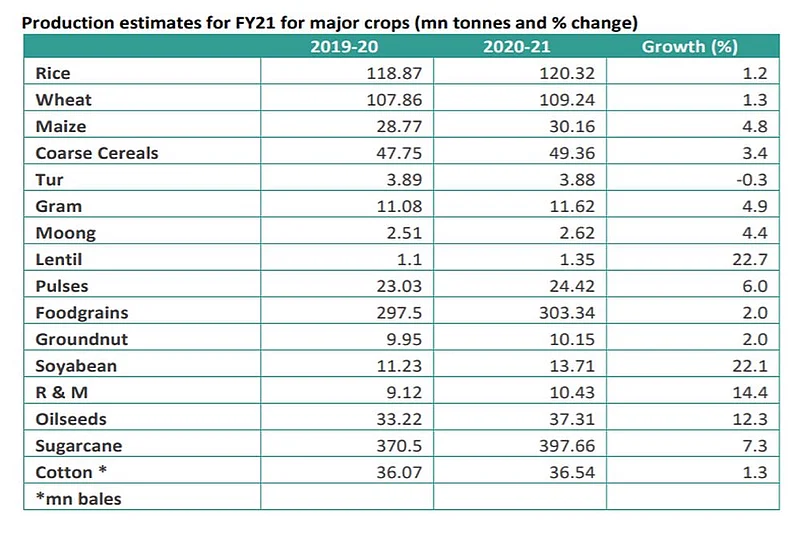Primary sector, which included agriculture, forests, and fisheries, was the bright spark of India’s GDP in the pandemic year, 2020-21. According to a CARE Rating report (February 2021), this sector is likely to “grow by 3.4% this year (2020-21) on top of 4% growth” in the previous year.
Two caveats need to be introduced here. One, the agriculture growth took place despite the “issues in marketing and pricing due to the closedown of transport and restriction in movement of people” during the various lockdown phases in 2020.

The former restricted the access to marketplaces, which drove up retail prices of food grains. The latter led to a piquant situation where migratory farm labour was unavailable, but a portion of this was made up by millions of families that returned to their villages.The second interesting aspect of the primary sector is that the growth was punctuated by a few uneasy trends. For example, the overall increase in food grain production this year is expected to be 2% – from 297.5 million tonnes to 303.34 million tonnes.
In fact, the comparison between crops presents a more dismal situation. In the cases of wheat and rice, which together account for more than three-fourths of annual food grain production, the growth is estimated to be 1.3% and 1.2%, respectively. This is lower than the overall 2%.
However, other crops, whose contribution was not too much, helped to boost farm growth. For instance, maize production is expected to shoot up by 4.8% this year, as against the overall figure of 3.4% for coarse cereals. Pulses too are estimated a show a remarkable 6% hike.
What is more amazing is the expected growth levels this year (2020-21) in the cases of sugarcane (7.3%) and oilseeds (12.3%). Thus, the boost in agriculture comes from the non-major crops.


























